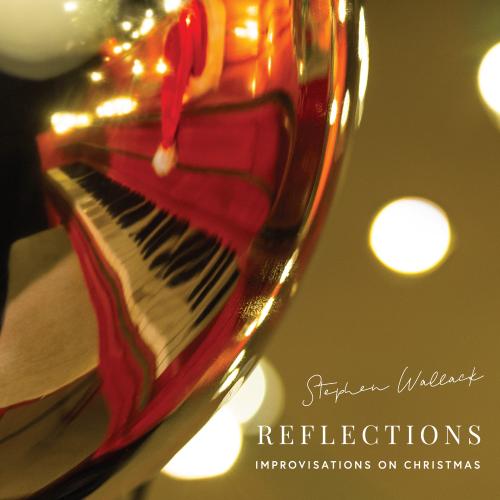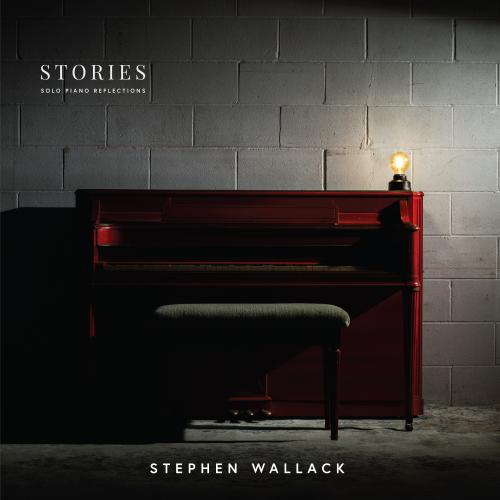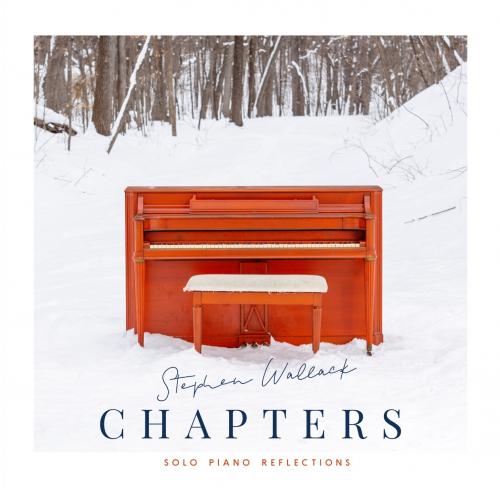Stephen Wallack
Minneapolis, Minnesota, UNITED STATES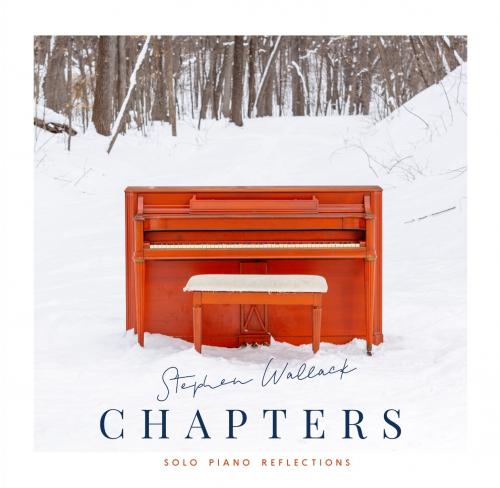 Official WebsiteFacebookTwitterInstagramSpotifyAppleMusic
Official WebsiteFacebookTwitterInstagramSpotifyAppleMusicStephen Wallack grew up in Minneapolis, Minnesota, surrounded by the music his older siblings were listening to such as Depeche Mode, The Cure, and REM. But it would be instrumental music that really connected with him. He began taking piano lessons when he was just five years old, but like many children, he hated performing in front of people. “I would cry so I didn’t have to participate in recitals, it drove my parents crazy!” said Wallack. Eventually it led to his parents abandoning piano lessons all together
One important thing he did learn from those lessons was that he had a musical ear and could play anything he heard. When he was 12, his best friend played him the album December by pianist George Winston. “That moment changed my life forever. I felt such a connection to his music, that for months I would sit at my little orange piano with a small tape player and just hit play/rewind over and over again until I figured out his songs. I essentially taught myself how to play piano listening to his music.”
“Another important influence for me was film music, which I started listening to at an early age. The first movie song I learned to play was the theme song from the movie ‘Platoon’ called ‘Adagio for Strings,’ composed by Samuel Barber and conducted for the soundtrack by Georges Delerue. I also loved the fantastic film score by James Horner from the Ted Danson movie ‘Dad,’ and the Ennio Marricone soundtrack from ‘The Mission’.”
“The power of music and film together was very inspiring for me. When I write, I picture the music moving to film and it really helps me to connect on a deeper level with the music”.
Wallack says that when he was 14-years-old he stopped playing other people’s music and started writing his own songs. “I connected with George Winston’s style of music so much when I was young, that writing just became a very natural next step for me. I had a lot of thoughts and emotions that I needed to express, and writing music was that outlet for me”.
Another pivotal moment in Wallack’s music career was when he became friends with Mike McCready of Pearl Jam, who gave him his first guitar and lessons. This helped broaden Wallack’s musical tastes to include not only Pearl Jam, but acts such as Soundgarden, The Cult, Tom Petty and Neil Young. “Mike is such an amazing musician and person, that I am beyond fortunate to have had the friendship I’ve had with him over the years. He really has inspired me to continue pursuing my passion for music”.
The music he writes is forceful, energetic, confident and passionate. The songs capture moments in time that were very impactful in his life. Wallack uses his music to connect with his emotions and tell those stories. “These songs have a very personal connection to me, but I want listeners to be able to make their own connections and see their own stories.”
Wallack says, “Music is a catalyst to make people feel things, and sometimes it can help people explore their emotions or change their way of looking at life. As a musician, if your music can simply cause someone to reflect on a moment in their life or cause them to feel something they haven’t felt before, that is powerful and that makes the artistic process worthwhile.”
Albums
“Reflections” reviewed by Pam Asberry
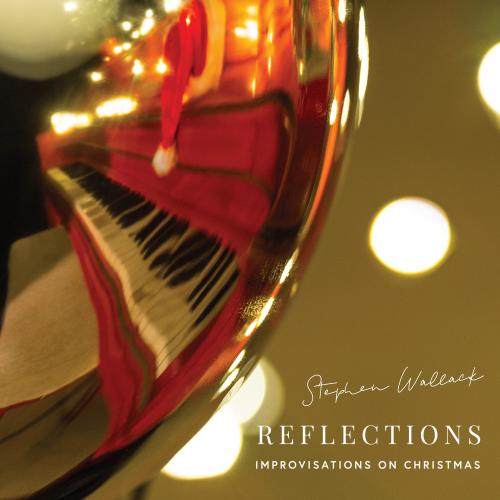
Using subtle fragments of some western culture’s most beloved holiday tunes, “Reflections” offers its listeners a novel and refreshing way to experience the songs of the season. Arranged and performed by pianist and composer Stephen Wallack, these melodies are so familiar to most of us that hearing just the smallest fragments conjures a plethora of memories and feelings. While these pieces don’t demand our undivided attention, careful listening reveals them to be charming, imaginative and quite captivating.
A native of Minneapolis, Minnesota, Wallack began taking piano lessons at the age of five. Performance anxiety kept him from continuing formal lessons for long – just long enough for him to realize that he had an ear for music and could imitate just about anything he heard. Happily, he discovered the album “December” by George Winston when he was 12; this turned out to be a major turning point for him in his musical development as it led him to begin composing. “I connected with George Winston’s style of music so much when I was young,” Wallack explains, “that writing just became a very natural next step for me.” Having listened to “December” countless times myself, I could definitely hear George Winston’s influence on the music of Stephen Wallack.
Like all the songs on the album, the first track, “Deck the Halls,” features a prominent bass and frequent repetition of musical patterns. The opening is improvisational; suspense builds, and then the familiar carol begins. Yet it isn’t altogether familiar with its syncopated rhythm, open intervals, and slip notes, and the effect is one of pure joy! “Rudolph, the Red Nosed Reindeer” is lighthearted and filled with anticipation, like the hearts of children on Christmas Eve; “We Wish You a Merry Christmas” is pulsing and energetic. The mood shifts with “We Three Kings”; this rendition is dark and mysterious and explores the full range of the piano keyboard. “Away in a Manger” was not the gentle lullaby I expected; it was more upbeat, perhaps an expression the wonder and joy experienced by those who were present at the time of the birth of the Christ Child. “Jingle Bells,” on the other hand, was introspective and thoughtful. A bit of musical storytelling, “Frosty the Snowman” weaves the tale of the snowman come to life. The pulse-quickening “Joy to the World,” literally throbs with the joy of the season and is my personal favorite of all the pieces on the album. “O Christmas Tree” is nostalgic and sentimental and left me feeling warm and cozy as an evening in front of a fireplace. “Silent Night” brings this musical journey to a peaceful conclusion, perfectly capturing the stillness of a winter evening.
“Reflections” would make a lovely addition to any instrumental music lover’s holiday collection. Highly recommended!
“Stories” reviewed by Pam Asberry
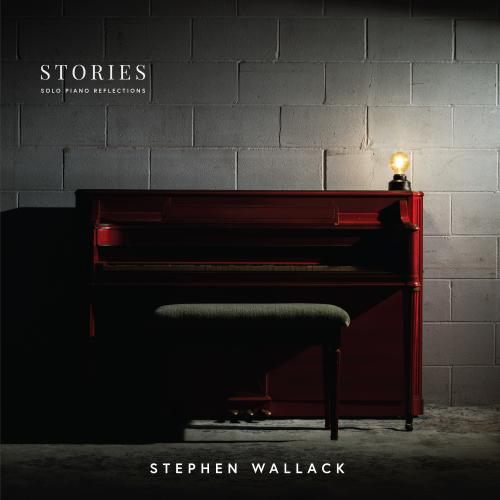
Pianist and composer Stephen Wallack’s combination of formal and exploratory learning results in music that defies stereotypes. His October 2020 release “Stories,” the natural successor to his debut album, “Chapters,” is a set of ten pieces whose musical elements synchronize to sonically describe specific people who have impacted his life. Using the metaphorical imagery of a 24-hour day, Wallack allows his listeners to experience this montage of memories.
The album begins with “Sunrise,” that daily event that is all too easy to take for granted. The opening is dark, with lots of bass and open intervals; soon, however, we hear splashes of sound in the upper register, like the first rays of sunlight sparkling over the horizon. Utilizing the full range of the keyboard, Wallack paints a majestic picture of the beginning of a new day. Next comes “Rain,” a lively joy-filled piece that put me in mind of a toddler in bright yellow boots splashing through puddles. The next track, “Children,” starts peacefully, as a waltz, but the mood shifts abruptly about halfway through, playfully channeling the ebullience and exhilaration of a child at play, before ending gently. The Latin word “excelsior” means “ever upwards” or “even higher” and the next piece, which bears this title, does just that, its regal and majestic opening followed by melody, dynamics and tempo that climb to a brilliant climax, evoking both zeal and yearning. “The Dancer” spins furiously round and round, like a ballerina executing a fantastical pirouette, with reflective pauses sprinkled throughout before the frenzy resumes.
“My Love” is a sweet romance, laced with tenderness and passion; in a similar vein, “Cousins” is permeated with devotion and affection, but with lively twists and turns. “Eight” is imbued with a driving, percussive energy throughout, then ends poignantly and lightly. Like an impressionist painting, “Monet” is rich with layers of texture, color and light. “Goodnight” winds down slowly, bringing the album to a pleasant and peaceful conclusion.
“Stories” is a refreshing and compelling musical experience, and Stephen Wallack is fast becoming one of my favorite contemporary solo piano artists. Very highly recommended!

